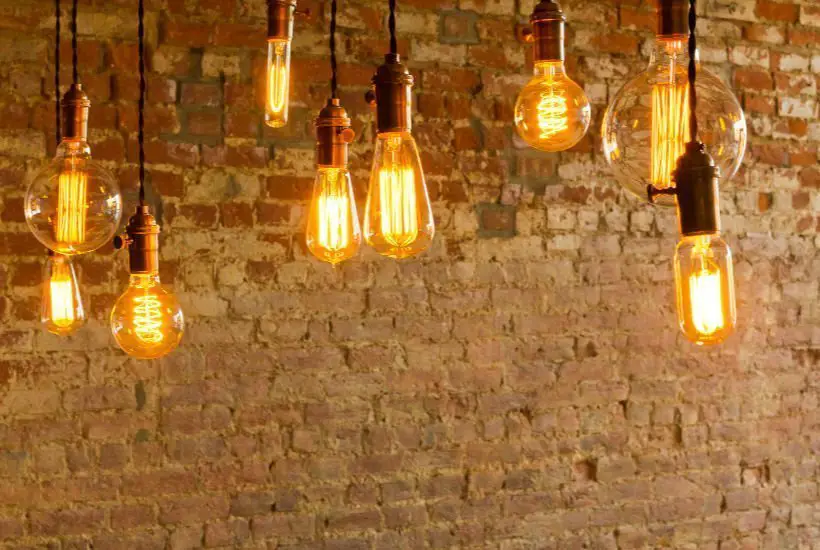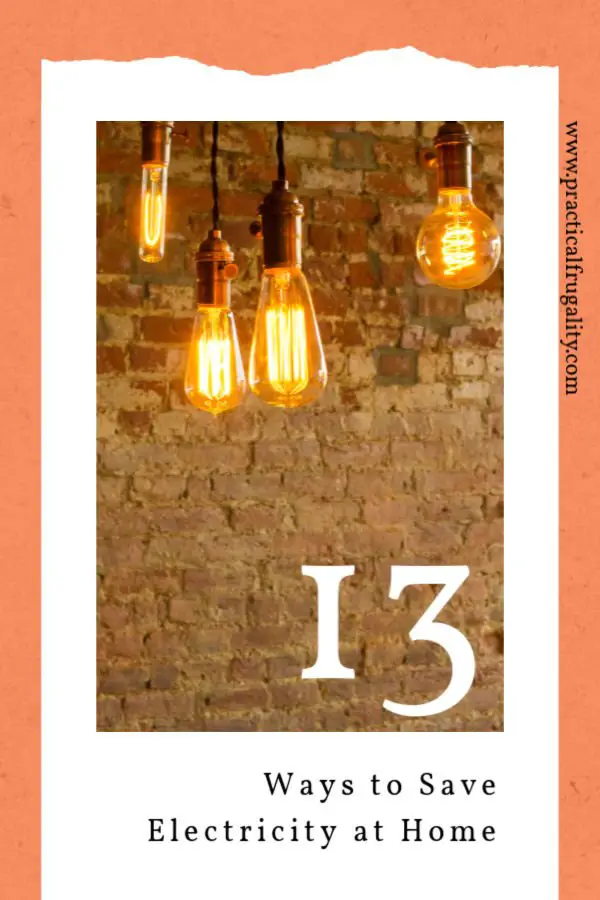These days saving electricity is not just about saving money, but it’s also about being more responsible for the future of our planet. By using only what you really need, you can save a substantial amount of money. Even the smallest of actions will add up over the year and make a significant – positive impact on your purse! Here is how to improve electricity savings and be more energy-efficient:

1. Switch off anything that doesn’t need to be on
It might not seem like a lot of saving to start off with, but switching off lights when you leave the room or switching off your television set properly when you don’t watch it makes a big difference in a long run.
Electrical devices, such as televisions, computers or music playing centres, are usually left on standby, which still consumes energy even if you don’t use the device. Go around the house and have a look at what qualifies as ‘standby’ device and decide whether it’s saved to switch it off and only switch it on when you actually use it.
2. Insulate your home
Whilst most of my suggestions save money straight away, insulating your home will initially cost money but save you a lot more in the long run. First of all, find out where your house is losing heat most. For example, my mum’s house has a flat roof, which wasn’t properly insulated, so every winter we were pretty much heating up the sky.
The only time our house was properly warm was when the snow came, and it created a layer of natural insulation! But relying on snow for winter insulation is not the best thing to do in the long term, so we took the plunge (and a bank loan) and insulated the roof. The results were amazing and the first winter we’ve not only saved a lot on our energy bills, but we finally had a warm house!
So, check your house insulation, the age and condition of your roof (even if it’s pitched roof, you could be benefiting from insulating your attic space) and the age and condition of your windows. Depending on where you live, you might also be eligible for a government-funded scheme, as there is a big push for making everyone’s homes more energy efficient. Check with your local council to see if you qualify.
3. Double glaze your windows
The chances are that you probably live in a house that already has double glazed windows. But there is still a difference between 10-15 years old windows and brand new ones. The technology is moving so fast, and modern windows are so much more energy efficient with thicker glass, airtight vacuum space in between the glass and unique insulating materials.
In our old house, we’ve changed the windows straightaway because we lived next to the railway station and wanted to reduce the noise as well as keep the heat in. Now that we’ve moved to our old Victorian house, our windows are far too old to be energy efficient, and they are on a to-do list to be replaced.
4. Use Energy Efficient Lightbulbs
These days, most lightbulbs are energy efficient, but if you still have the old types of lightbulbs, go around the house and change them to the new ones.
5. Control your heating
Adjust the thermostat to be cooler inside in winter, warmer in summer (if you have airconditioning). Adjust clothing layers & utilize blankets to compensate for temperature differences.
6. Don’t pre-program your thermostat
This might not suit everyone, but we actually don’t have a heating or hot water pre-programmed. It’s permanently switched off, and we only switch it on when we need to and for only the time that’s necessary.
In reality, this means that the hot water is on for about 30 minutes in the morning, which heats up the whole boiler. If I’m running a bread baking course or do a lot of washing up, I might need to put it on for another 30 minutes in the afternoon, but that’s usually enough.
Heating is off permanently, and we only put it on when we are cold. This prevents the heating going on at regular intervals when we are either not at home or not back from work or going out in the evening.
If you have a large family, this one is probably not for you, but you can still reduce the time that your heating or hot water goes on regularly every day. Reducing that time by even 10 minutes each day will save you a fair amount of money over the year.
7. Heat and cool your home efficiently.
Utilize fans and space heaters if your family spends most of your time in 1-2 rooms. There is no need to heat or cool the entire home when you aren’t using all of the rooms. Close the vents in rooms you aren’t using.
8. Be efficient with your laundry
Switch from 60C to 30C to save energy that takes your washing machine to heat up the water.
Most washing powders are designed to work in low temperatures these days, so unless you are washing very soiled laundry, 30C or 40C programme is enough to clean your clothes.
9. Skip the tumble drier, and air dry your laundry
In the summer leave your washing to dry naturally outdoors or open a window when using an indoor drying frame. In the winter combine the time when you have your radiators switched on and wash and dry a load at the same time. You’ll save energy, and your home will smell nicely too – better than any air freshener anyway!
10. Look after your fridge
Since the fridge is one of the home appliances that takes the most energy, it makes sense to concentrate on this first. Clean and clear out your fridge regularly and make sure that everything is tidy inside and slightly away from the back and sides of the fridge. This is because many fridges need a circulation of air to cool down your food, and if you stuff everything to the back of your fridge, the cooling system needs to work extra hard to keep everything cold.
From time to time, pull your fridge gently away from the wall and lightly hoover the coils at the back if you have thick dust settling on the fridge coils they tend to overheat, which means that the fridge needs to use more energy to keep your food cold.
Defrost your fridge regularly, including your freezer. Again the build-up of any ice or frost inside the freezer is not good for the efficiency of your fridge. Regular maintenance, every 3-4 months is probably sufficient, but it really depends on how often you use your fridge and on the size of your fridge.
Make sure that your fridge is located somewhere in the kitchen where there is no direct sun. The heat from the sun would make the fridge unnecessarily hot, and the cooling system would need to work extra hard to compensate for this.
11. Replace your fridge with a more efficient one
No matter how well you look after your fridge, there comes the time, when you’ll need to think about replacing it. The good news is that technology is advancing fast, and the new fridge is not only going to be more efficient; it will save you money in the long run. Look out for fridge/freezers with good rating and A+ efficiency.
12. Switch off all appliances before you go on holiday
Go around the house and switch off everything that doesn’t need to be switched on or on standby. This includes all music and television sets, computers, printers or other home office devices. Make sure that any heating or water heater is also switched off; you really don’t need your water heated when you are miles away enjoying your holiday.
One thing you probably wouldn’t want to disconnect is a fridge as it takes a while to defrost and run down. Ours is fridge – freezer, so it’s not really possible to switch it off completely. But what I do is to run down the fridge/freezer food as much as I can before holidays and then turn down (or rather up) the fridge/freezer temperature. Because nobody will be opening and closing the doors for the next week or so, the temperature will be cold enough even if the thermostat is set slightly higher.
13. Switch to a new electricity supplier with cheaper rates.
Switching is relatively easy, and you can save anything up to 10-12% on heating & 15% on cooling by taking advantage of the new customer’s offers, that many energy companies have these days. Get out your previous electric bill and compare the price per kWh with your current energy supplier. Install the modern smart thermostat in your home to monitor your actual energy usage.
When you view and analyze how much energy your home is using, you’ll be more informed about where and how you can reduce your energy usage – saving you more money!
These are just a few tips on how to save electricity in your own home and I’m sure there are plenty more! Do let me know in the comments below and I look forward to reading them.
Magdalena
other practical ideas on how to save energy and money in your home
- Tips on how to save on heating in your home >>
- 7 tips on how to save energy >>
- Simple ways to reduce your household cost >>
PIN THIS FOR LATER


Leave a Reply